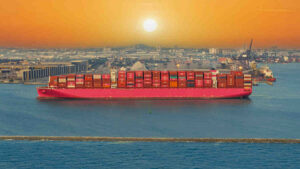Most common anti-money laundering mistakes revealed

Most common anti-money laundering mistakes revealed. Image: Getty
Anti-money laundering software company First AML reveals the most common mistakes made by companies that are uncovered during anti-money laundering audits
Australia has the most lax anti-money laundering laws in the developed world. Anti-money laundering software company First AML says the country has an undeniably dangerous culture of money laundering and is one of the most vulnerable targets by criminals looking for a black market washing machine.
Despite the expected implementation of Tranche 2 reforms, the absence of any current regulatory framework has seen Australia become a major international hub for the laundering of illicit funds. As a result, both financial and non financial institutions alike are an easy target for money laundering.
The potential fines and reputation damage caused by non-compliance means the stakes are high and companies should pay attention. According to research by First AML, a whopping 95% of respondents admitted that a money laundering incident would impact a company’s ability to attract new clients and retain existing ones.
CEO Milan Cooper says that if regulations were in place, all reporting entities would be able to assess how their AML program is functioning in practice and how the policies, procedures and controls in place are mitigating the money laundering and financing terrorism risks identified by that business.
The privilege of hindsight
Cooper says, “Perhaps one benefit of the Labour government’s snail paced effort to implement Tranche 2, is that we can learn from the compliance processes and mistakes of other countries.”
“The reputational damage that results from such missteps can be avoided. Greater preparation now will mean a successful transition for business in the not so distant future.”
Common pitfalls:
- Having incomplete source of wealth information
Identifying the source of a client’s funds is not always a straightforward task. Basic documentation such as payslips, work contracts and bank accounts are standard practice when gathering wealth information. However, when it comes to larger corporations and high-profile individuals, the paper trail isn’t always easy to follow. Although it can be a hassle, knowing where customers obtain their funds and wealth to conduct transactions or make investments to fulfil regulatory requirements is essential. Not doing due diligence catches companies out.
- Failing to adequately set out the compliance framework in a risk assessment
Regardless of how long we have to wait for Tranche 2, it is coming and individual firms’ ethics and reputation should not have to be compromised in the meantime. Firms have the discretion to create their own approach to compliance, tailored to their risk appetite. Once Tranche 2 is implemented it is integral that at a bare minimum internal frameworks meet regulatory requirements.
It’s important that firms have a document in place outlining their risk assessment that it can show to regulators in the event of a future audit. Setting up a firm-specific compliance framework is a great step businesses can take now. Doing this correctly means staff need to be trained on how to handle complex cases. There needs to be a focus on educating staff about how to identify money laundering transactions. Instead of making this activity a box-checking exercise, it’s best to show staff several examples and show how human error/complacency can make it difficult to spot red flags.
- Not appointing an Anti-Money Laundering and Counter-Terrorism Financing (AML/CTF) Compliance Officer
Many firms have failed to designate an Anti-Money Laundering and Counter-Terrorism Financing (AML/CTF) Compliance Officer. Their duty is to review internal systems and controls that the firm has in place to help detect, monitor and report money laundering activities to the authorities. Though the role can be easily assigned to an individual on top of their day-to-day activities, the role is key as it ensures that their firm is not exposed to criminal risk and does not inadvertently facilitate financial crime.
Appointing somebody now and ensuring adequate training will mean that they are well equipped to ride out the transition with little disruption or possibility of error.
This article was developed in collaboration with First AML, a Stockhead advertiser at the time of publishing.
This article does not constitute financial product advice. You should consider obtaining independent advice before making any financial decisions.
Related Topics
UNLOCK INSIGHTS
Discover the untold stories of emerging ASX stocks.
Daily news and expert analysis, it's free to subscribe.
By proceeding, you confirm you understand that we handle personal information in accordance with our Privacy Policy.








